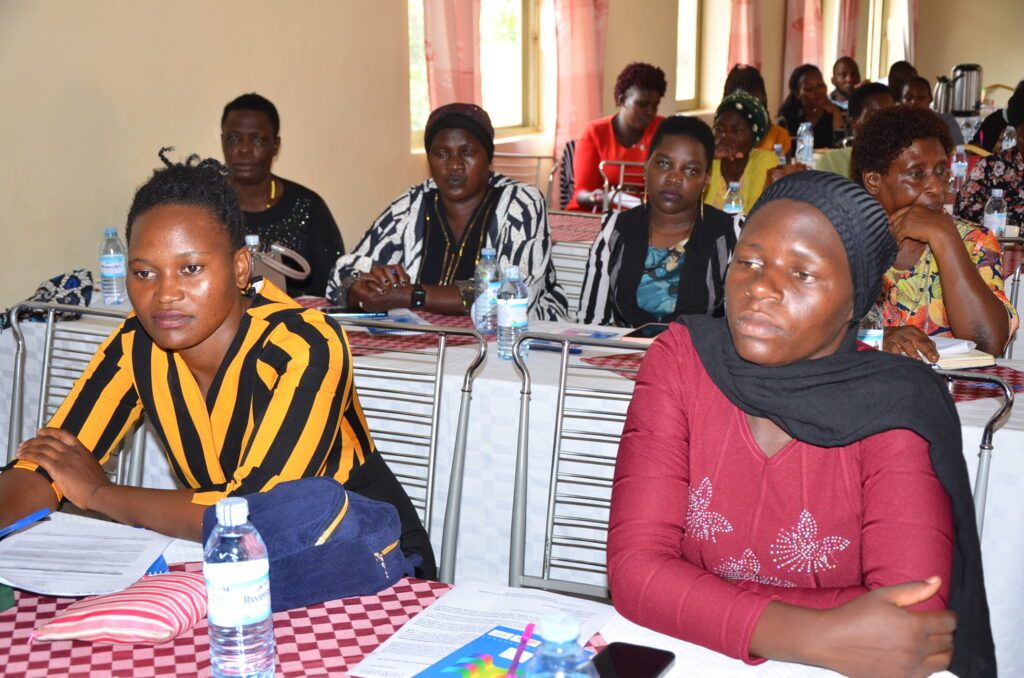The rising cases of gender-based violence (GBV) in Masindi district have been attributed to poor parenting, poverty, ignorance, negligence, and declining moral values.
This was highlighted during the annual district GBV meeting organised by the Forum for Women in Democracy (FOWODE) at Kolping Hotel, Masindi town recently.
Charles Jadao, the Bunyoro-Kitara Kingdom Parish Chief for Civic Ward in Masindi Municipality, said weak moral values among couples are a significant driver of GBV.
He attributed this primarily to poor parenting and called on cultural leaders to step up their roles in sensitising communities about moral values.
“Cultural leaders need to return to their core responsibility of educating people about moral values to reduce unnecessary family conflicts. Poverty also plays a key role. Leaders should encourage communities to engage in productive activities, as financial instability often leads to domestic conflicts,” he said.
Grace Mukonyezi, head of the Family and Children Protection Unit at Masindi Police Station, linked GBV cases to a lack of respect among couples and financial disputes.
She noted the alarming frequency of cases, with the unit receiving more than four complaints daily related to GBV or sexual and gender-based violence (SGBV).
“Poor upbringing and lack of parental guidance are exacerbating the problem. Couples need to understand each other better to avoid these conflicts,” Mukonyezi added.
Clare Businge Wamara, Masindi district’s Gender Focal Person, urged married women to embrace government programmes that provide capital for starting businesses, stressing that financial empowerment can mitigate GBV.
Annette Karamagi, Masindi district Probation and Welfare Officer, revealed a decline in GBV cases due to intensified sensitisation campaigns.
She reported that in the previous financial year, the district recorded 1,265 GBV cases, compared to 92 cases so far this year. Similarly, SGBV cases dropped from 1,224 last year to 101 cases reported this year.
“This significant reduction is the result of consistent sensitisation efforts through radio programmes and community meetings,” Karamagi explained.
However, she noted challenges such as victims delaying to report cases or avoiding reporting altogether due to fear of stigma, which often compromises evidence.
Masindi district local government has decided to mainstream GBV-related issues in its budgeting and work plans.
Cosmas Byaruhanga, the Masindi district Chairperson, announced that no departmental budget will be approved without a component addressing GBV prevention and management.
“GBV issues cut across all sectors. Poverty, ignorance, and outdated mindsets are at the root of these problems. Leaders must prioritise sensitisation and discourage practices like negotiating defilement cases. Men must also take responsibility for parenting,” Byaruhanga added.
Mourine Kyomuhendo, FOWODE’s Programmes Officer, revealed that findings from the organization’s Budgeting for Peace study, estimated that GBV and SGBV cost Ugandan households sh31 trillion annually, equivalent to 15.5% of the country’s Growth Domestic Product (GDP).
“The economic toll underscores the need for increased funding and implementation of GBV prevention, mitigation, and management initiatives. This should form the foundation for engaging stakeholders, particularly civil society.”
She added that over the past three years, FOWODE has conducted various community activities to raise awareness, promote women’s rights, and prevent SGBV.
The annual GBV meeting aimed to assess the current state of GBV, evaluate the implementation of gender-sensitive policies, and track progress on previous commitments to eliminate SGBV in Masindi.
Kyomuhendo implored leaders to lead efforts in advancing gender equality, combating GBV, and promoting gender-responsive budgeting in Uganda.


